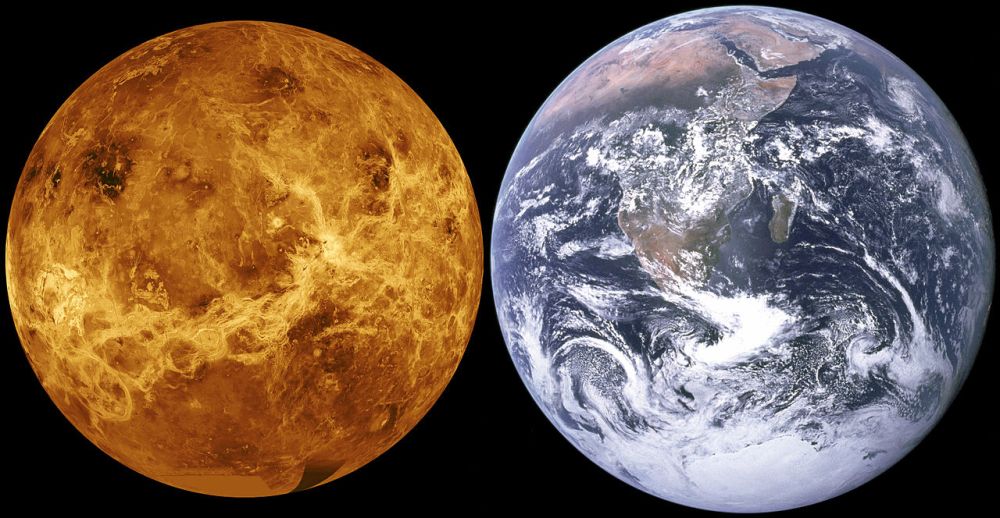Today we hear about climate change pretty often. Whether it’s politicians debating on policy or the “please recycle” signs on the backs of plastic products, the reality of pollution and the other bad ways humans have influenced the environment is hard to ignore. CO2 emissions and the greenhouse effect are common themes in this topic, since they pose the most devastating yet entirely feasible threat to life on earth. From the many angles that one can look at pollution and climate change, whether that’s from politics, climate science, or anthropology, or marine biology, one of the most informative angles come from the astronomical perspective.

The reason to be so concerned about carbon dioxide (CO2) emissions becomes undeniably clear when you compare the Earth to Venus. Just a little close to the sun, Venus is otherwise very similar to Earth in size and composition, yet it is completely uninhabitable. Although Venus has volcanoes and perhaps tectonic plates just like its sister, Earth, its mean surface temperature is a whopping 735 Kelvin! That’s 462 °C or 863 °F, much to hot for habitation. Why is Venus so hot? Its atmosphere is composed of 96% CO2, compared to the Earth’s almost complete lack of CO2 in its atmosphere. When an atmosphere has lots of CO2, then the Greenhouse Effect causes the planet to retain its heat and get hotter and hotter. So where is all the Earth’s CO2? Well, much of it is stored in the ground in places such as coal and oil, and as we burn them as sources of energy it could potentially put more CO2 into the atmosphere than the Earth could handle and snowball (no pun intended) out of control, causing its temperature to get higher and higher until it is uninhabitable. For the astronomer, then, caring about climate change and getting CO2 emissions under control is about keeping the Earth from ever looking like Venus, staying blue, white, and beautiful instead of a waterless wasteland.
Do you think that if we inhabit significantly colder worlds, we should increase CO2 emissions? If we were to colonize Mars perhaps a TRAPPIST-1 system, should we alter the atmosphere to be able to trap more heat?
LikeLike
Great post, it is definitely valuable to look at other environments in order to learn more about our own. Hopefully Venus is a good enough example of what we don’t want to happen to Earth for everyone who wants humanity to survive.
LikeLike